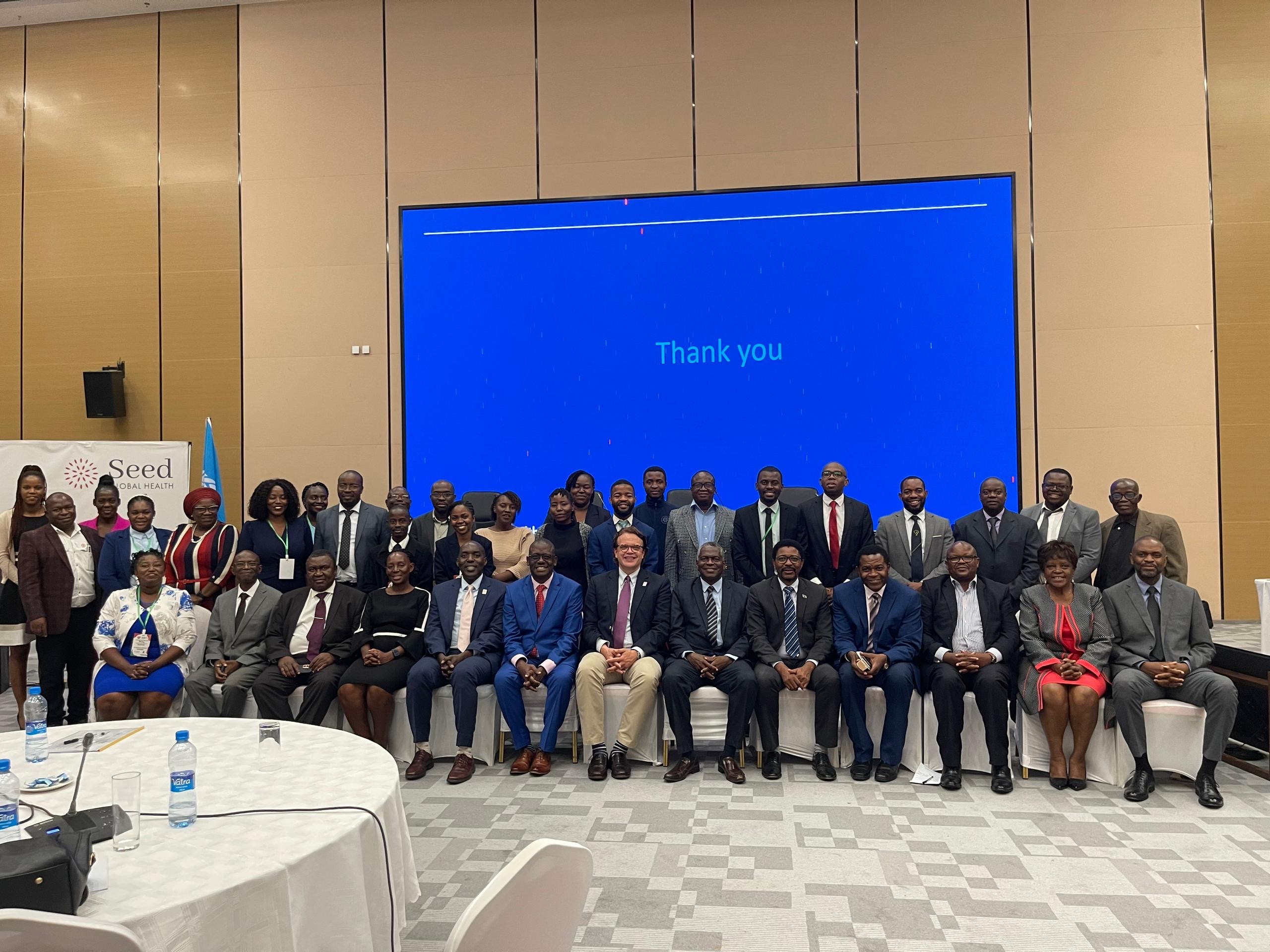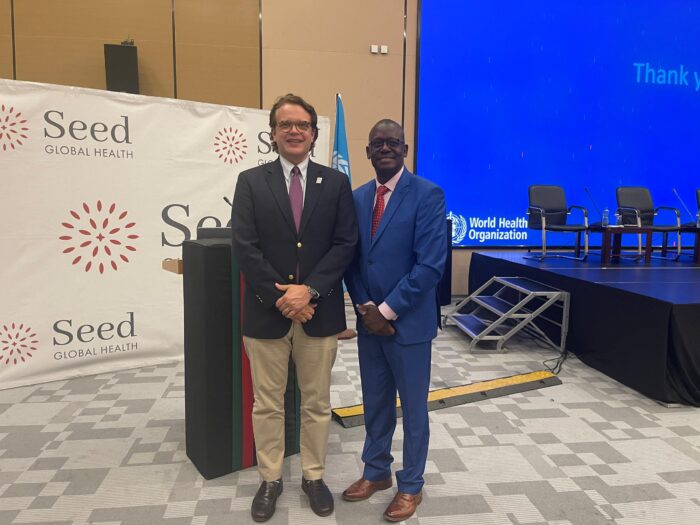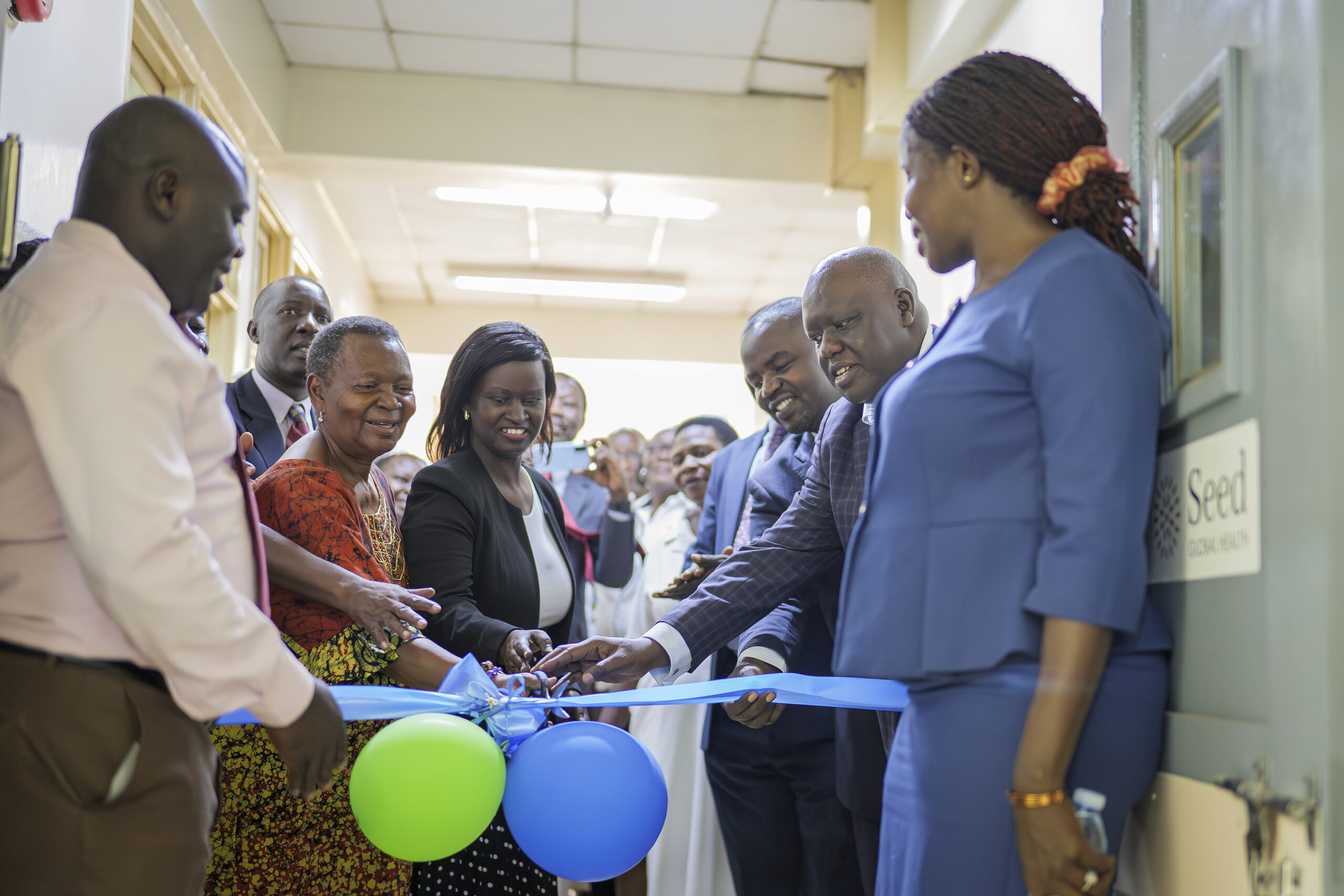
Transforming Primary Health Care in Zambia through Family Medicine
Seed Supports Zambia’s Inaugural Family Medicine Stakeholder Meeting
Seed Global Health, the University of Zambia (UNZA), and the Association of Family Physicians of Zambia convened the country’s first-ever family medicine stakeholder meeting on April 18.

The meeting, which was attended by high-level representatives from the Ministry of Health, UNZA, WHO, Zambia National Public Health Institute, University of Lusaka, and Seed Global Health, provided an opportunity to showcase the history and growth of family medicine in Zambia, strategize career advancement for Zambia’s newly minted family doctors, and plan for future collaboration to advance family medicine as a profession.
At Seed, we’ve been supporting the government of Zambia through the Ministry of Health to educate and train the country’s first family medicine doctors. In 2019, we launched a partnership with UNZA to create the first family medicine Master of Medicine program. The program’s aim is to strengthen family medicine training and increase the number of practice-ready family doctors who are able to deliver high-quality primary care to patients of all ages throughout Zambia.
Reflecting on the Ministry of Health’s objective to extend health services into communities, Permanent Secretary for Donor Coordination George Sinyangwe said, “What started many years ago has started giving dividends, including providing community-based special care to our people. This feeds into our strategic aspirations of taking health services to where people live, work, and go to school.”
Research shows that countries with primary health care systems centered on skilled family medicine doctors have better patient outcomes, increased patient satisfaction, and lower costs. UNZA’s family medicine master’s degree program equips its graduates to address the health challenges of individuals in the context of their family circumstances, their social and cultural networks, and the circumstances in which they live and work. They are trained to provide a full array of primary health care services to patients of all ages under one roof.
Since 2019, UNZA has seen a sharp increase in enrollments of family doctors from two to 30 in 2024. UNZA created two full time faculty positions – staffed by two of the first graduates of the family medicine master’s degree program – and is exploring creating two additional part time faculty positions. This is a big step towards sustainability as more graduates take on new faculty positions.
![UNZA School of Public Health Dean Dr. Hikabasa Halwindi said, “The ground for this shift [in primary health care] has been well-prepared through the partnership that we have with Seed Global Health.](https://seedglobalhealth.org/wp-content/uploads/2024/04/Zambia-partnership-meeting-web-story-graphic-700x700.png)
Lauding Seed’s support, UNZA School of Public Health Dean Dr. Hikabasa Halwindi said, “The ground for this shift [in primary health care] has been well-prepared through the partnership that we have with Seed Global Health. From inception of the family medicine post-graduate program, Seed Global Health has provided us with faculty members [and] teaching staff at great cost to support the program at large and so I am pleased to also note the efforts that are being made to actually develop our local staff, to have our own staff that will be supported by external staff that come to help us on the program.”
Looking ahead, Seed will continue to support the growth of family medicine in Zambia over the next five years, focusing on training family doctors to deliver comprehensive clinical care, including critical emergency care, close to where people live and work.

